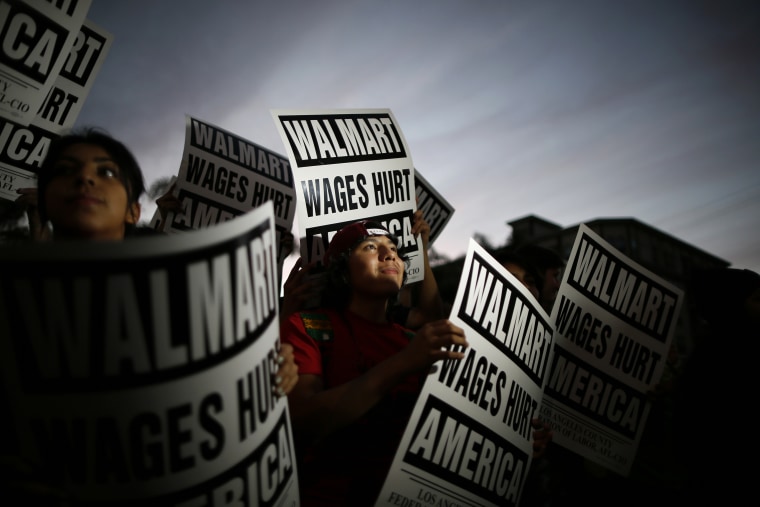Walmart is the beneficiary of billions of dollars per year in federal subsidies, according to a new report [PDF] from the non-partisan, progressive group Americans for Tax Fairness.
The report estimates that Walmart and the Walton family—which co-founded the company and still owns a majority share—collectively profit from nearly $7.8 billion per year in federal subsidies and tax breaks.
"This report shows that our current system is anything but fair – rather it provides special treatment to America’s biggest corporations and richest families leaving individual taxpayers and small businesses to pick up the tab," the report concluded.
The $7.8 billion includes an estimated $6.2 billion in public assistance for low-wage Walmart employees, including programs like food stamps, subsidized housing, and Medicaid. It also includes an estimated $70 million per year in "economic development subsidies" from state and legal governments eager to host Walmart in their cities.
Walmart spokesperson Randy Hargrove described the report as "not accurate," citing a detailed response to its main points on Forbes.com. The author of the response, columnist Tim Worstall, described the report as "fantastical nonsense" and took issue with the claim that welfare acts as an effective subsidy for Walmart.
"The existence of these welfare payments means that the reservation wage rises. That is, an employer needs to pay people more to come into work because they get an income (however low that is) whether they work or not," Worstall wrote.
For members of OUR Walmart, the labor activist group that has led major strikes against the company, the primary issue seems to be whether Walmart could afford to raise wages for them such that they would no longer need public assistance.
“Many Walmart workers like me can’t cover the rent or feed our families without public assistance because of Walmart’s low wages,” said OUR Walmart member and Walmart employee Anthony Goytia in a statement.
In November, a Walmart in Ohio was discovered to be collecting food donations for its own employees, many of whom evidently couldn't afford their own Thanksgiving dinners on their current salaries. A study [PDF] from the Democratic staff of the House Committee on Education and the Workforce claims employees at a single Wisconsin Walmart receive about $1 million per year in public assistance.
"The bottom line is we provide opportunity," said Hargrove. He noted that Walmart had promoted more than 170,000 employees in the past fiscal year.
